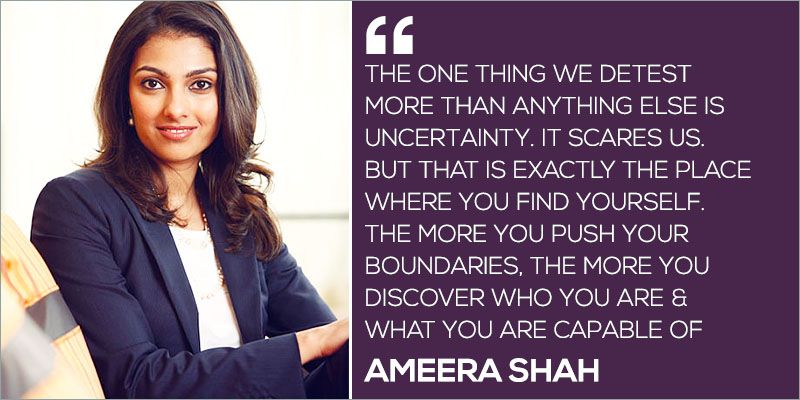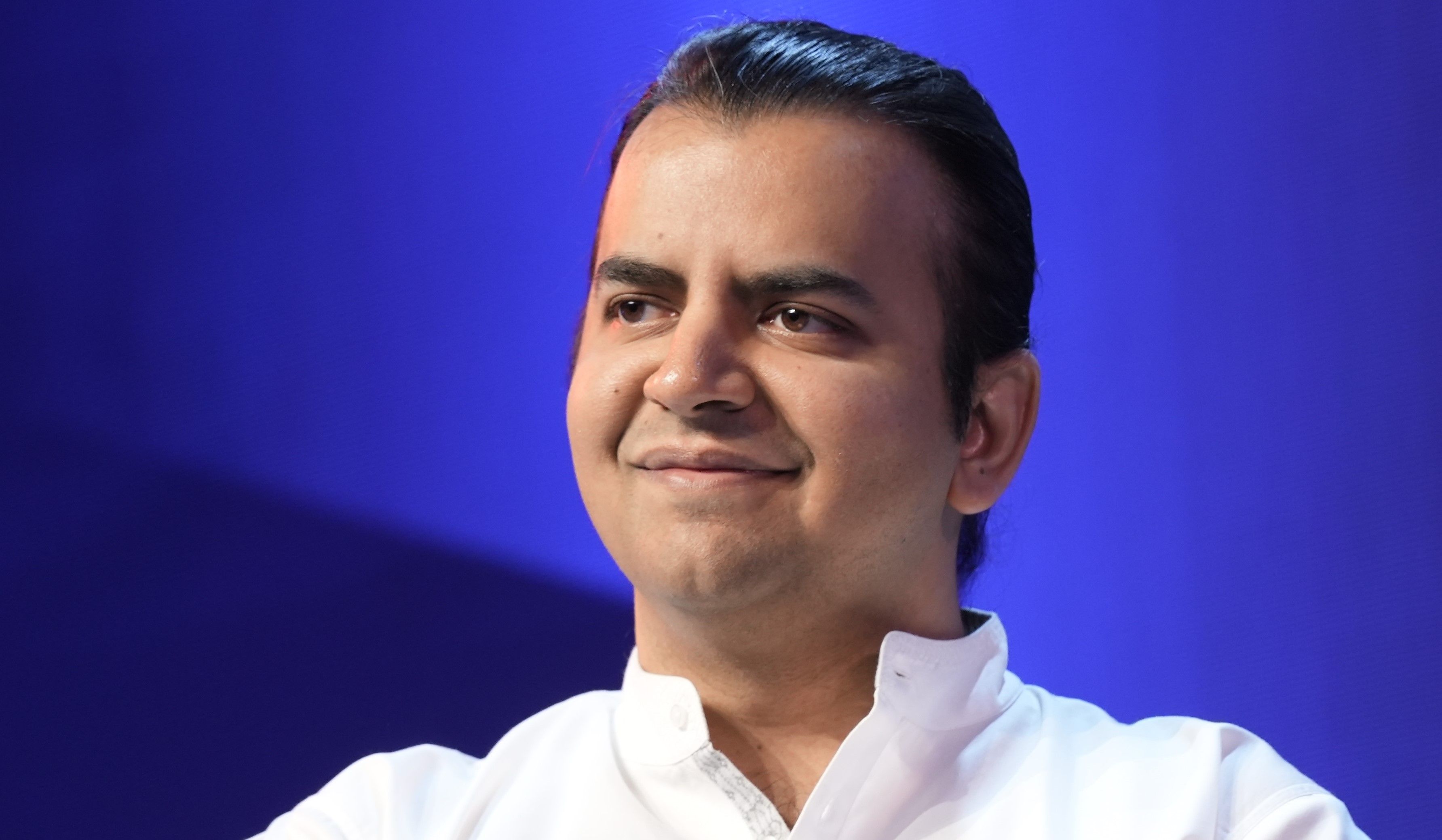How Ameera Shah turned her father's single laboratory into a Rs 2000 crore empire
When Dr Sushil Shah graduated from medical school in the 1980s he felt dissatisfied by the inadequacies of the healthcare system in India, especially in the way medical tests were conducted. Determined to treat his patients with the newest technological advances available in the market, he left for USA on a fellowship and studied keenly the methods and procedures underway there. When he came to India, he started his own pathology laboratory, eponymously titled, ‘Dr Sushil Shah’s Laboratory,’ from his garage. His kitchen served as his clinic.
“Today, we talk about thyroid tests, fertility tests and different hormonal tests. These didn't exist in India in the 80s. He was first one to start them here. He built this practice from scratch, focusing on providing services that others did not have the skill set or the expertise to do,” says his daughter Ameera Shah proudly.
Thirty five year old Ameera today is at the helm of a global pathology empire, having transformed her father’s single laboratory into INR 2000 crore company. Yet not long ago she was an inexperienced 21-year-old, confused about what to do with her life.

What to do with my life?
“I was working with Goldman Sachs in New York. It was a coveted position and my friends were envious that I had landed it. But I didn't enjoy that at all. I loved being in New York but the financial services space was not for me. I've never been passionate about making money. Hence, the making money from money position was not for me,” she says. So she did the unthinkable and quit. “Next, I started working at a startup with only five employees. While the experience itself was not the best, it taught me early on that I like small companies, small teams and, more than anything, the ability to make an impact every day. I like the feeling that if I am not there I am missed.”
Ameera knew she wanted to do something worthwhile with her life, but says, “When you are 21 and say these things then no one takes you seriously.” Dissatisfied with the scope of her work, and its consequent impact in the US, she turned to her father for advice. Her father asked her if she wanted to be an executive or an entrepreneur. “What’s the difference,” she asked him.
An executive or an entrepreneur
“In the first, you can have a great career, prestige and money. If that's what you want to do then you should stay in the US because that's where the best opportunities are. But if you want to create impact, if you want to be the heart and soul of a company where the work you do matters, then you need to be an entrepreneur. And for that you need to come back to India,” her father told Ameera. She choose to be an entrepreneur, and came back to India in 2001.
“At the time the decision was controversial. India was not considered to be the 'India Shining' that it is now. Entrepreneurship was non-existent. It was a culture shock initially. I had never worked in India. The lab operated as a sole proprietorship. My father and his right-hand man made all the decisions. Everything was centralized. There were no computers, emails, systems, and processes. It was just one person sitting and taking the calls. I felt that this was not how you grow. You can't scale when one person is making all the decisions. There's no system and it's all so arbitrary,” she says.
Dr. Sushil Shah’s Laboratory was a thriving 1500 square feet organization in South Mumbai where it had built up a steady clientele and a stellar reputation in the 25 years of its operation. “But it was a single organization. Nobody beyond south Mumbai had heard of it. My father had a vision of having a chain of laboratories pan India, but there was no clarity on how to go about achieving this. Moreover, there was no bandwidth for growth,” Ameera explains.
Reform
She took the bull by the horns from the word go. “My first goal was to transform the sole proprietorship into a company. We brought in new talent, created new departments, digitized communication systems, created SOPs and processes. Mind you, this was all very new for me. I was fresh off business school where you are usually taught about big companies: how to make cash flow statements, how to do formula and calculations on excel. What you don't learn is how to handle practical issues involving people daily. How do you put a system in place, how do you attract good talent when you are a small company and can’t afford to pay big salaries? I relied on common sense and my instincts to keep going.”
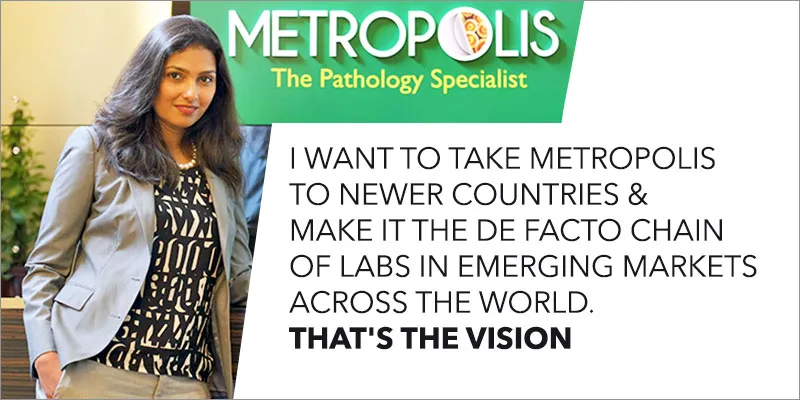
She did not get her father’s endorsement to introduce these sweeping changes from the start. Ameera says, “My father is not the kind of person who gave me the top position from day one. I literally started from the customer care counter where I was facing patients and dealing with day to day issues. Simultaneously, I was putting these building blocks in place. To me that was the best decision because I was not coming in from a ‘top to bottom’ but a ‘bottom to up’ point of view. I really knew what the issues were on the ground and therefore what needed to be done. This went on for a couple of years.”
Let's get growing
After two years of this back and forth, Ameera decided it was time to get serious about growth. “The way my father had built the reputation of his pathology in south Mumbai over 25 years, we thought there would be other laboratories in other cities which are well known. We had earlier changed the name from Dr. Sushil Shah's Laboratory to Metropolis because now there were multinational companies that were coming in and providing competition. We wanted to tie up with existing independent laboratories and bring them under the umbrella of Metropolis.”
In 2004, Metropolis signed its first partnership. “We found this one pathologist in Chennai, Dr. Srinivasan, who fit our criteria. We pitched him the benefits of coming on board with us. Today, we have done 25 such partnerships,” she beams.
Metropolis’s first round of funding was in 2006, raised through ICICI ventures in 2006. Warburg Pincus, the American global equity firm, bought out ICICI and invested heavily in Metropolis in 2010. “The only reason we needed money was because we wanted to acquire shares in other companies for which we could not raise debt,” says Ameera in reference to the fundraising of 2006. “We don't come from a business family where we have a lot of money to invest. We would reinvest whatever profits were accrued from the lab and keep going. Obviously it had to be proportional to the rate of growth. It’s not like today's startups and e-commerce companies where the revenue is INR 2 crores and you spend 100 crores a month. We could only spend what money we had.” Metropolis bought out Warburg Pincus’s share recently, and is not interested in looking at external investors for now.
The foundations for Metropolis’s phenomenal growth were laid long before 2006 and their external funding. “In 2002, it was a seven crore revenue company well just one lab. There were about 40 to 50 employees. In about 13 years, we have gone from being one lab to about 800 centres and 125 laboratories in seven countries. Our valuation stands at INR 2000 crores plus and our annual revenue is at INR 500 crores,” Ameera glows.
Going international
The decision to go international was a purely opportunistic move. “We were not even pan India then, only in Mumbai, Chennai and Kerala. We came across a chance partnership where we felt we could enter Sri Lanka and set up a base. We knew that the market in India was a very competitive one and that the pricing was going to be precarious. In comparison, the Sri Lanka market seemed easier (also because Sri Lanka outsources its medical needs to Singapore). That's how we went into Sri Lanka in 2005. It was not a strategic decision at all but it paid off. Another opportunity came in the Middle East in 2006 and we ran with it. Similarly, in Africa in 2007.”
Ameera thoroughly enjoys dealing with diverse work cultures in her dealings with Metropolis. “Each of these markets is different and unique in their own ways. Sri Lanka is a relaxed place. There are many public holidays, but it is hierarchical in the same manner as India. The Middle East market is focused on the image they present to the world. They also tend to function in a more corporate atmosphere. Each country in Africa is different. South Africa is very professional in their business dealings, not as personal as we are in India. But they have a strict nine to five culture unlike India where you stretch your hours. Their face time matters less than actual productivity.
What is important for a company like ours - where we are based across the globe - is to have a consistent method of working. A Metropolis employee sitting in Kenya and one sitting in India should share similar ethics and attitudes to work which is based on certain values. Those values are of integrity, honesty, compassion and of constantly making sure that accountability is at the fore of all that we do.”
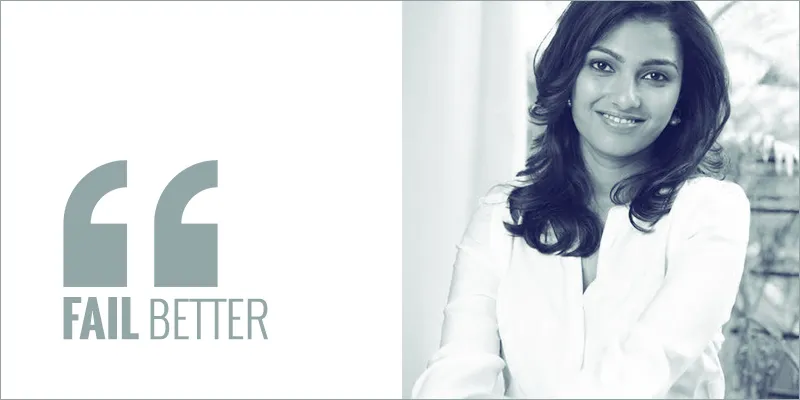
Regrets
Metropolis’s sharp upward curve has witnessed some equally disappointing failures. “Most of these partnerships have worked well for us. Some of them have not. Again that was our need to get into a partnership quickly rather than assessing whether it was sustainable or not,” Ameera comments. Based on these failures, there were some things she wishes she had done differently.
“Healthcare is traditionally seen as an older, and usually a male bastion. Being a young woman, getting others to take me seriously has been a difficult obstacle. Having a non-medical background also sets you back if you want to be an entrepreneur in the healthcare field. The one thing I would have done differently is be less opportunistic and be more strategic. There is a benefit in building a business through partnerships and opportunities. When opportunities come, they come quickly. But they go just as quickly. There is more value in organic growth. I wish I had concentrated more on that,” she says quietly.
A woman in a man's world
Being a young female boss, Ameera has had to face appalling instances of gender discrimination. From being mistaken for a secretary to constantly being undermined by her junior male colleagues, she continues to face more harassment than is acceptable. But, like another wise woman once said, she concentrates on battles she can win. “The gender battles that women generally face in the workplace and the ones that a women entrepreneur will face are different. For a woman entrepreneur, because you are building the organization and the culture, the situation is absolutely different. When you are building your own brand you have to go out and sell your story. That's the hardest part where the discrimination comes in,” she says.
Ameera continues, “Most people, in my experience, feel uncomfortable sitting across a table from a woman who is their equal. It's not their fault. While growing up, an entire generation of men have dealt with women in only two capacities -- as a mother or wife, but not in a work space. They don't know how to relate to women as an equal. They've only had experience protecting women or providing for them.”
It is important to acknowledge the problem rather than pretend it doesn’t exist, says Ameera. “But acknowledging it does not mean excusing this behaviour. I choose to let my work speak for itself. Women have to focus on their strengths to neutralize these situations,” she advises.
The future
Ameera is excited about what the future holds for her company. “Metropolis has been in an expenditure phase for the past two to three years where we have been investing in our people, infrastructure, distribution, network and sales. Now I am hopeful about experiencing the results of the work we've been doing. This is on the short term basis.
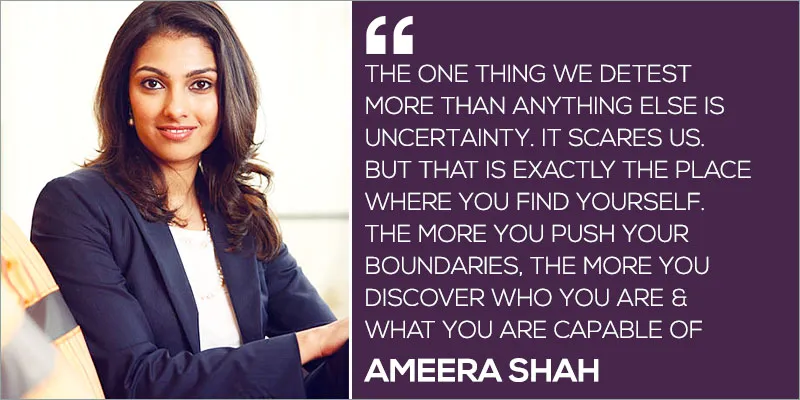
“On a long term basis, consumer behaviours are changing. Mindsets are changing. I want to professionalise the business more, bring in more innovation and change the business model substantially depending on how the future shapes up. I want to take Metropolis to newer countries and make it the defacto chain of labs in emerging markets across the world. That's the vision.”
Ameera plays tennis three times a week and works out twice a week. She hates being cooped in AC offices and escapes to the outdoors any chance she gets. “I love sailing, camping and trekking. Any down time I get is divided between activities that bolster my physical and mental health and spending time with my loved ones,” she says. When asked what the best advice she has received is, she has two words: “Fail better.”
Advice
Amidst the ups and downs of the past 14 years, Ameera has some solid advice of her own to offer. “You have to keep pushing your boundaries. It's human nature to get comfortable and stay in status quo. The one thing we detest more than anything else is uncertainty. It scares us. But that is exactly the place where you find yourself. The more you push your boundaries, the more you discover who you are and what you are capable of.”
Read more:
From Rs 240 to Rs 20 Cr, the story of Alkesh Agarwal of Re-Feel Cartridge Engineering
She failed twice, but all she could see was the ‘Upside’
From a farm labourer to an IT millionairess, how Jyothi Reddy beat all odds to emerge a winner
Watch now:






